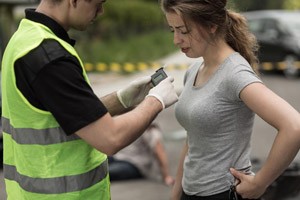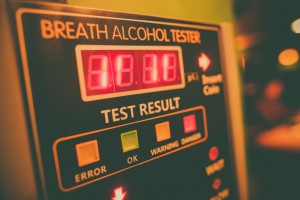Earlier this month, a New Jersey woman settled a lawsuit against Ocean City, individual Ocean City police officers, and other defendants after claiming that she contracted a disease because police officers conducted a forced urine sampling procedure to see if she had been driving drunk. Law enforcement must first obtain a driver’s consent before taking a blood or urine sample. If consent is not given, officials can legally obtain a warrant from a judge to get a driver’s urine sample if they have probable cause to believe he or she has been driving drunk, but, in this case, the lawsuit alleged that the procedures used by the officers were unauthorized and improper.
Events Leading Up to the Arrest
Norma Powell’s original arrest dates back to July 11, 2012, when Ocean City police believed that she was intoxicated after driving her Nissan Sentra the wrong way through a toll lane and crashing into a concrete barrier wall on the Ocean City-Longport Bridge. A witness following the vehicle told police Powell had been driving erratically across the bridge and nearly hit a pedestrian.
Police subsequently pulled over Ms. Powell and conducted field sobriety tests to see if she was intoxicated. In New Jersey, these tests include walking on a line and turning, standing on one leg, and something called a horizontal gaze nystagmus test which measures your eyes for involuntary movements. Based on these tests, the police officers believed they had probable cause to administer a breathalyzer, but Ms. Powell could not complete the Breathalyzer test because she suffered from chronic obstructive pulmonary disease (COPD). Police then took her to a hospital.
The Allegedly Improper Urine and Blood Testing in this Case
At this point, Ms. Powell alleges that the officers’ actions were unauthorized, improper, and/or illegal, because they asked hospital staff to draw her blood and obtain a urine sample without her consent and without a warrant. If a driver does not agree to provide a urine or blood sample, government officials are legally required to obtain a warrant before getting such a sample.
The process used to obtain Ms. Powell’s urine sample is called catheterization. The lawsuit claims that the improper catheterization caused Ms. Powell to contract MRSA, a serious bacterial infection. This prompted her to file a federal lawsuit with the U.S. District Court against Ocean City, Sgt. Daniel Dubbs, Shore Medical Center, and two hospital employees: Kathryn Page, a registered nurse, and Jessica Ruiz, an advanced practice nurse in July of 2014. Earlier this month, it was reported that Ms. Powell dropped the case against all of the defendants in exchange for a settlement of $140,000. A city representative has declined to comment on the settlement.
When the Police Can Test You in New Jersey, and When They Cannot
In New Jersey, as a condition of receiving your driver’s license, you are required to provide a breath sample to a police officer if the officer has probable cause to believe you have been driving while intoxicated. This is known as “implied consent.” If you refuse to take the test, you are subject to punishment including a loss of driving privileges, fines, and jail time based on a charge for Refusal to Provide a Breath Sample, N.J.S.A. 39:4-50.2.
However, New Jersey law does not require that a driver provide blood or urine samples. Police officers may request blood and urine testing when a breathalyze test cannot be used – for instance, due to the driver’s health condition, an injury, or the unavailability of a breathalyzer machine. Breathalyzer machines also can only test for blood alcohol content, and cannot measure intoxication due to drugs or other substances. A driver has the right to refuse to participate in testing.
If you are not comfortable with providing a urine or blood sample, you should refuse to give consent to such testing. If a driver refuses, the police must obtain a search warrant from a Judge, based upon probable cause that the driving is driving while intoxicated and if granted, the police can then force a driver to give blood or urine for testing. If a warrant is issued, then you have to comply.
If you or someone you know has been arrested on any charges related to driving under the influence of alcohol or drugs, you should consult an experienced attorney immediately. A knowledgeable DUI/DWI lawyer will be able to review you case, see if the actions taken by the government were authorized or proper, and explain what consequences you are facing in your specific situation.
New Jersey Drunk Driving Attorney Edward M. Janzekovich Can Help Drivers Facing DUI / DWI Charges
A charge for operating a motor vehicle while under the influence of drugs or alcohol can result in serious and complicated penalties that affect you and your loved ones. Defending drivers charged with DWI / DUI can also involve complicated evidentiary issues. A knowledgeable attorney will know how to review the case. An experienced DUI attorney can make all the difference. To speak with an experienced New Jersey DWI lawyer about your situation, call us at 732-257-1137 or contact us online today. We serve clients throughout the state of New Jersey.





 Prom season and graduation season are here and the New Jersey police are taking underage drinking seriously this year. With prom underway, graduation nearing, and the excitement of summer vacation and college freedom looming, it’s not consider the dangers associated with this behavior, drinking alcohol before the age of 21 is illegal in the Garden State. But as with many laws, there will always be those who decide to risk it, and many teens don’t always think before taking every action.
Prom season and graduation season are here and the New Jersey police are taking underage drinking seriously this year. With prom underway, graduation nearing, and the excitement of summer vacation and college freedom looming, it’s not consider the dangers associated with this behavior, drinking alcohol before the age of 21 is illegal in the Garden State. But as with many laws, there will always be those who decide to risk it, and many teens don’t always think before taking every action.


 For nearly two decades, the state of New Jersey has had a legal blood alcohol content (BAC) limit of .08%. That means that if you are pulled over in this state and suspected of
For nearly two decades, the state of New Jersey has had a legal blood alcohol content (BAC) limit of .08%. That means that if you are pulled over in this state and suspected of 